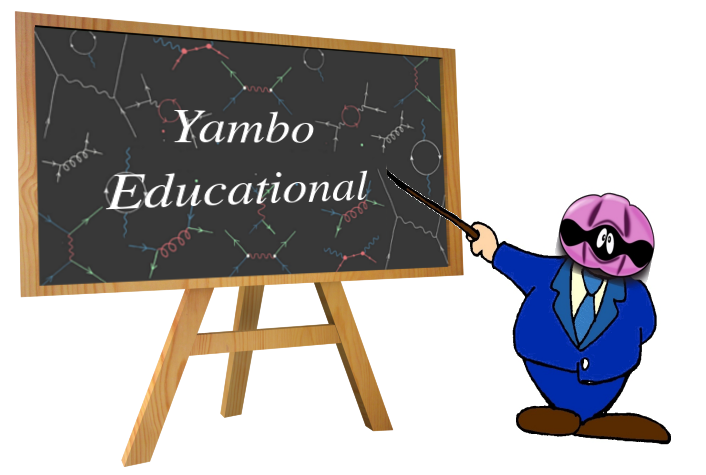Main Page: Difference between revisions
(→Learn) |
No edit summary |
||
| Line 24: | Line 24: | ||
* [[Tutorials]] | * [[Tutorials]] | ||
* [[Yambo_Virtual_Machine|A Yambo-based Virtual Machine]] | * [[Yambo_Virtual_Machine|A Yambo-based Virtual Machine]] | ||
== Run == | == Run == | ||
Revision as of 10:06, 31 January 2020
Welcome to the Yambo educational page. In this page you will find several informations about how to run Yambo and, more generally, about the methods implemented in the code.
Yambo Philosophy
The Yambo Philosophy is simple: read, learn, run, cite us!
Yambo is a tool but to use it you must first know as much as possible the theories, approximations and methods that are coded in the tool.
Yambo should never be used without a clear understanding of the theory laying behind the code.
This is exactly the aim of this wiki page. To guide the general Yambo user, advanced or not, in a detailed tour of the Yambo features.
Read
Reading is the basic ingredient. Here we provide some elemental references of the theories/methods used in Yambo:
- Background theory
- Lectures on various topics by the Yambo team
- Other reading material
- Cheatsheets: Relating theory and code variables
- Thesis
Learn
The second step in the philosophy are the tutorials. These can be run standalone or via a Yambo-specific Virtual Machine
Run
Cite us
It is scientifically fair to cite the two following articles in any publication based on results obtained with Yambo
- Many-body perturbation theory calculations using the yambo code, Davide Sangalli and Andrea Ferretti and Henrique Miranda and Claudio Attaccalite and Ivan Marri and Elena Cannuccia and Pedro Miguel Melo and Margherita Marsili and Fulvio Paleari and Antimo Marrazzo and Gianluca Prandini and Pietro Bonf\`a and Michael O Atambo and Fabio Affinito and Maurizia Palummo and Alejandro Molina Sanchez and Conor Hogan and Myrta Gr\xFCning and Daniele Varsano and Andrea Marini, Journal of Physics: Condensed Matter 31, 325902 (2019).
- Yambo: an ab initio tool for excited state calculations, Andrea Marini, Conor Hogan, Myrta Grüning, Daniele Varsano, Comp. Phys. Comm. 144, 180 (2009).
Check the Yambo researcher ID page for citation information.
